Fiction Sets
All That Makes Life Bright
By: Josi S. Kilpack
Genre: Fiction – Historical Fiction
Books in Set:10
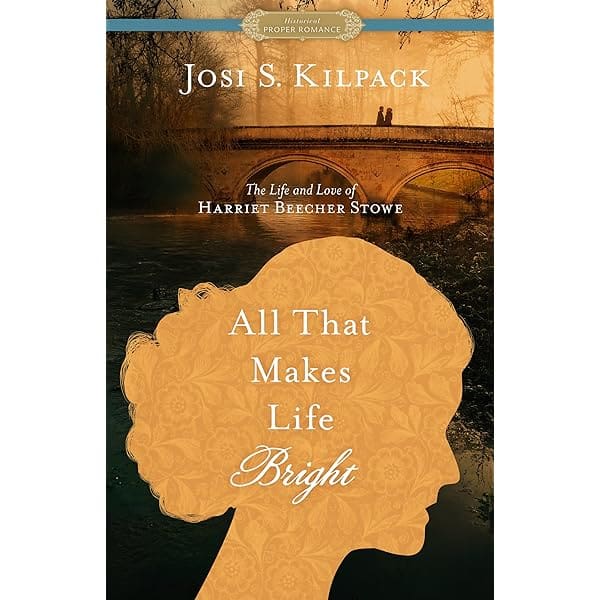
When Harriet Beecher marries Calvin Stowe on January 6, 1836, she is sure her future will be filled romance, eventually a family, and continued opportunities to develop as a writer. Her husband Calvin is completely supportive and said she must be a literary woman. Harriet’s sister, Catharine, worries she will lose her identity in marriage, but she is determined to preserve her independent spirit. Deeply religious, she strongly believes God has called her to fulfill the roles of wife and writer and will help her accomplish everything she was born to do.
Two months after her wedding Harriet discovers she is pregnant just as Calvin prepares to leave for a European business trip. Alone, Harriet is overwhelmed-being a wife has been harder than she thought and being an expectant mother feels like living another woman’s life. Knowing that part of Calvin still cherishes the memory of his first wife, Harriet begins to question her place in her husband’s heart and yearns for his return; his letters are no substitute for having him home. When Calvin returns, however, nothing seems to have turned out as planned.
Struggling to balance the demands of motherhood with her passion for writing and her desire to be a part of the social change in Ohio, Harriet works to build a life with her beloved Calvin despite differing temperaments and expectations.
Can their love endure, especially after “I do”? Can she recapture the first blush of new love and find the true beauty in her marriage?
Austenland: a novel
By: Shannon Hale
Genre: Fiction
Books in Set:9

Because her obsession with Jane Austen’s Mr. Darcy, as played by Colin Firth in the BBC adaptation of “Pride and Prejudice,” is ruining her love life, Jane Hayes is delighted when she gets the chance to take a trip to an English resort catering to Austen-crazed women.
The Baker’s Secret
By: Stephen P. Kiernan
Genre: Historical Fiction – Fiction
Books in Set:10
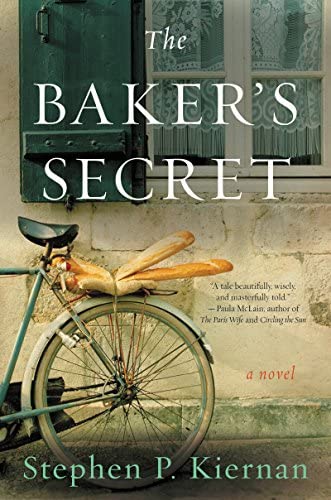
From the multiple-award-winning, critically acclaimed author of The Hummingbird and The Curiosity comes a dazzling novel of World War II—a shimmering tale of courage, determination, optimism, and the resilience of the human spirit, set in a small Normandy village on the eve of D-Day.
Beauty
By: Robin McKinley
Genre: Fiction/Teen
Books in Set:9
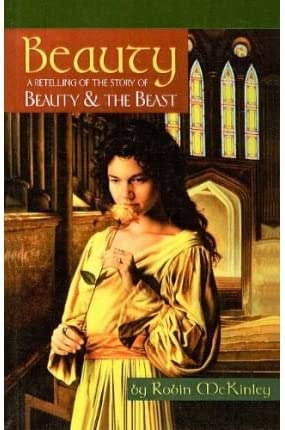
Robin McKinley’s beloved telling illuminates the unusual love story of a most unlikely couple: Beauty and the Beast. Beauty has never liked her nickname. She is thin and awkward; it is her two sisters who are the beautiful ones. But what she lacks in looks, she can perhaps make up for in courage. When her father comes home with the tale of an enchanted castle in the forest and the terrible promise he had to make to the Beast who lives there, Beauty knows she must go to the castle, a prisoner of her own free will. Her father protests that he will not let her go, but she answers, “Cannot a Beast be tamed?”
Behind Closed Doors
By: B. A. Paris
Genre: Fiction
Books in Set:10
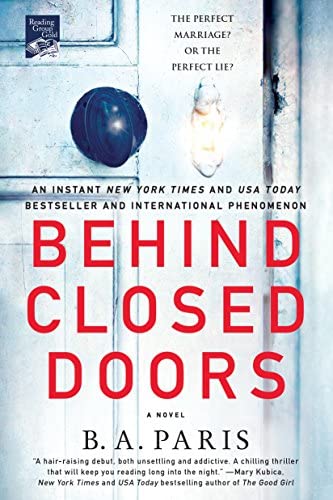
Everyone knows a couple like Jack and Grace: he has looks and wealth, she has charm and elegance. You’d like to get to know Grace better. But it’s difficult, because you realize Jack and Grace are never apart. Some might call this true love.
The perfect marriage? Or the perfect lie?
Beneath the Wide Silk Sky
By: Emily Inouye Huey
Genre: Fiction – Historical Fiction
Books in Set:8

Sam Sakamoto doesn’t have space in her life for dreams. With the recent death of her mother, Sam’s focus is the farm, which her family will lose if they can’t make one last payment. There’s no time for her secret and unrealistic hope of becoming a photographer, no matter how skilled she’s become. But Sam doesn’t know that an even bigger threat looms on the horizon.
On December 7, 1941, Japanese airplanes attack the US naval base at Pearl Harbor. Fury towards Japanese Americans ignites across the country. In Sam’s community in Washington State, the attack gives those who already harbor prejudice an excuse to hate.
As Sam’s family wrestles with intensifying discrimination and even violence, Sam forges a new and unexpected friendship with her neighbor Hiro Tanaka. When he offers Sam a way to resume her photography, she realizes she can document the bigotry around her — if she’s willing to take the risk. When the United States announces that those of Japanese descent will be forced into “relocation camps,” Sam knows she must act or lose her voice forever. She engages in one last battle to leave with her identity — and her family — intact.
Emily Inouye Huey movingly draws inspiration from her own family history to paint an intimate portrait of the lead-up to Japanese incarceration, racism on the World War II homefront, and the relationship between patriotism and protest in this stunningly lyrical debut.
The Big Finish
By: Brooke Fossey
Genre: Fiction
Books in Set:10
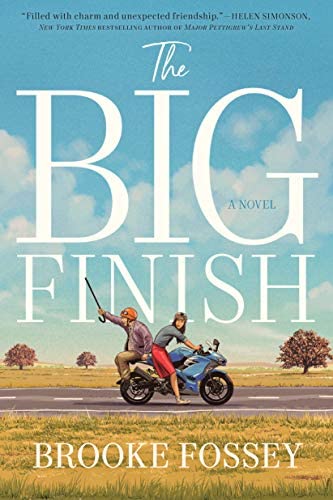
For Duffy Sinclair, life boils down to one simple thing: maintaining his residence at the idyllic Centennial Assisted Living. Without it, he’s destined for the roach-infested nursing home down the road–and after wasting the first eighty-eight years of his life, he refuses to waste away for the rest. So, he keeps his shenanigans to the bare minimum with the help of his straight-laced best friend and roommate, Carl Upton.
But when Carl’s granddaughter Josie climbs through their bedroom window with booze on her breath and a black eye, Duffy’s faced with trouble that’s sticking around and hard to hide–from Centennial’s management and Josie’s toxic boyfriend. Before he knows it, he’s running a covert operation that includes hitchhiking and barhopping.
He might as well write himself a one-way ticket to the nursing home…or the morgue. Yet Duffy’s all in. Because thanks to an unlikely friendship that becomes fast family–his life doesn’t boil down the same anymore. Not when he finally has a chance to leave a legacy.
In a funny, insightful, and life-affirming debut, Brooke Fossey delivers an unflinching look at growing old, living large, and loving big, as told by a wise-cracking man who didn’t see any of it coming.
The Black Canary
By: Marilyn Brown
Genre: Fiction
Books in Set:8

Italian immigrants Sol and Micca Morelli have made their home in Helper, Utah, where they raise canaries that warn miners of poisonous gases in the underground tunnels. Sol and his son Loucas work in the coal mines. When the two men are pressured to join in a labor strike, they become embroiled in a conflict that could leave them jobless . . . or worse.
Bloomsbury Girls
By: Natalie Jenner
Genre: Fiction – Historical Fiction
Books in Set:10
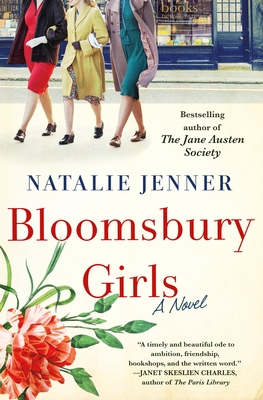
Bloomsbury Books is an old-fashioned new and rare book store that has persisted and resisted change for a hundred years, run by men and guided by the general manager’s unbreakable fifty-one rules. But in 1950, the world is changing, especially the world of books and publishing, and at Bloomsbury Books, the girls in the shop have plans:
Vivien Lowry: Single since her aristocratic fiance was killed in action during World War II, the brilliant and stylish Vivien has a long list of grievances–most of them well justified and the biggest of which is Alec McDonough, the Head of Fiction.
Grace Perkins: Married with two sons, she’s been working to support the family following her husband’s breakdown in the aftermath of the war. Torn between duty to her family and dreams of her own.
Evie Stone: In the first class of female students from Cambridge permitted to earn a degree, Evie was denied an academic position in favor of her less accomplished male rival. Now she’s working at Bloomsbury Books while she plans to remake her own future.
As they interact with various literary figures of the time–Daphne Du Maurier, Ellen Doubleday, Sonia Blair (widow of George Orwell), Samuel Beckett, Peggy Guggenheim, and others–these three women with their complex web of relationships, goals and dreams are all working to plot out a future that is richer and more rewarding than anything society will allow.
The Book of Speculation
By: Erika Swyler
Genre: Fiction
Books in Set:10
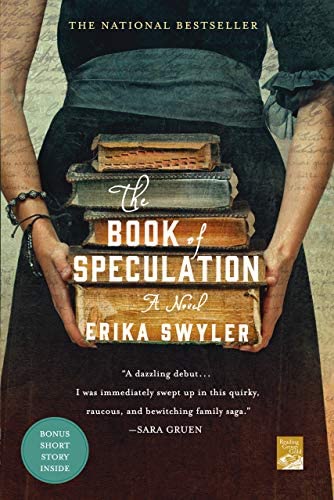
Simon Watson, a young librarian, lives alone in a house that is slowly crumbling toward the Long Island Sound. His parents are long dead. His mother, a circus mermaid who made her living by holding her breath, drowned in the very water his house overlooks. His younger sister, Enola, ran off six years ago and now reads tarot cards for a traveling carnival.
One June day, an old book arrives on Simon’s doorstep, sent by an antiquarian bookseller who purchased it on speculation. Fragile and water damaged, the book is a log from the owner of a traveling carnival in the 1700s, who reports strange and magical things, including the drowning death of a circus mermaid. Since then, generations of “mermaids” in Simon’s family have drowned–always on July 24, which is only weeks away.
As his friend Alice looks on with alarm, Simon becomes increasingly worried about his sister. Could there be a curse on Simon’s family? What does it have to do with the book, and can he get to the heart of the mystery in time to save Enola?
The Bookish Life of Nina Hill
By: Abbi Waxman
Genre: Fiction
Books in Set:10

The only child of a single mother, Nina has her life just as she wants it: a job in a bookstore, a kick-butt trivia team, a world-class planner and a cat named Phil. If she sometimes suspects there might be more to life than reading, she just shrugs and picks up a new book.
When the father Nina never knew existed suddenly dies, leaving behind innumerable sisters, brothers, nieces, and nephews, Nina is horrified. They all live close by! They’re all–or mostly all–excited to meet her! She’ll have to Speak. To. Strangers. It’s a disaster! And as if that wasn’t enough, Tom, her trivia nemesis, has turned out to be cute, funny, and deeply interested in getting to know her. Doesn’t he realize what a terrible idea that is?
Nina considers her options.
1. Completely change her name and appearance. (Too drastic, plus she likes her hair.)
2. Flee to a deserted island. (Hard pass, see: coffee).
3. Hide in a corner of her apartment and rock back and forth. (Already doing it.)
It’s time for Nina to come out of her comfortable shell, but she isn’t convinced real life could ever live up to fiction. It’s going to take a brand-new family, a persistent suitor, and the combined effects of ice cream and trivia to make her turn her own fresh page.
Carrying Albert Home
By: Homer Hickam
Genre: Fiction
Books in Set:10
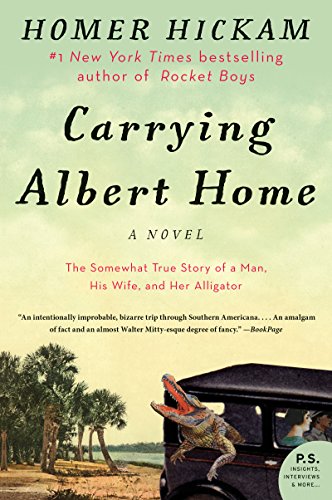
Carrying Albert Home is the funny, sweet, and sometimes tragic tale of a young couple and a special alligator on a crazy 1000-mile adventure. Told with the warmth and down-home charm that made Rocket Boys/October Sky a beloved bestseller, Homer Hickam’s rollicking tale is ultimately a testament to that strange and marvelous emotion we inadequately call love.
The Chicken Sisters
By: KJ Dell’Antonia
Genre: Fiction
Books in Set:10
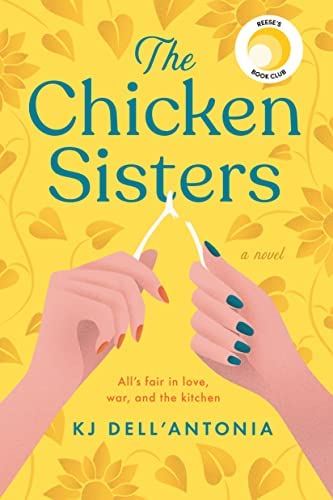
For a century two rival chicken shacks in Merinac, Kansas, have been vying to serve the best fried chicken in the state, and a feud between the two families has lasted as long. When Amanda falls in love with a man from the rival chicken shack, she scandalously changes sides and starts working for her family’s nemesis. Tired of being stuck in the middle, she recruits her Brooklyn-based sister to move back to Kansas and join her on reality TV show Food Wars to settle the feud. Yet when family secrets become public, the sisters must choose: will they fight with each other, or for their heritage?
A Christmas Carol
By: Charles Dickens
Genre: Fiction – Holiday
Books in Set:7

Cruel miser Ebeneezer Scrooge has never met a shilling he doesn’t like. . .and hardly a man he does. And he hates Christmas most of all. When Scrooge is visited by his old partner, Jacob Marley, and the ghosts of Christmas Past, Christmas Present, and Christmas Yet to Come, he learns eternal lessons of charity, kindness, and goodwill.
The City of Ember
By: Jeanne Duprau
Genre: Fiction/Teen
Books in Set:8
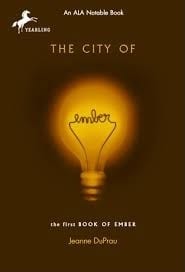
It is always night in the city of Ember. But there is no moon, no stars. The only light during the regular twelve hours of “day” comes from floodlamps that cast a yellowish glow over the streets of the city. Beyond are the pitch-black Unknown Regions, which no one has ever explored because an understanding of fire and electricity has been lost, and with it the idea of a Moveable Light. “Besides,” they tell each other, “there is nowhere but here” Among the many other things the people of Ember have forgotten is their past and a direction for their future. For 250 years they have lived pleasantly, because there has been plenty of everything in the vast storerooms. But now there are more and more empty shelves–and more and more times when the lights flicker and go out, leaving them in terrifying blackness for long minutes. What will happen when the generator finally fails?
Twelve-year-old Doon Harrow and Lina Mayfleet seem to be the only people who are worried. They have just been assigned their life jobs–Lina as a messenger, which leads her to knowledge of some unsettling secrets, and Doon as a Pipeworker, repairing the plumbing in the tunnels under the city where a river roars through the darkness. But when Lina finds a very old paper with enigmatic “Instructions for Egress,” they use the advantages of their jobs to begin to puzzle out the frightening and dangerous way to the city of light of which Lina has dreamed.
A Countess Below Stairs
By: Eva Ibbotson
Genre: Fiction/Teen
Books in Set:10
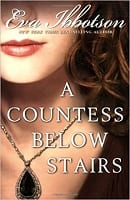
After the Russian Revolution turns her world upside down, Anna, a young Russian countess, has no choice but to flee to England. Penniless, Anna hides her aristocratic background and takes a job as a servant in the household of the esteemed Westerholme family. Anna is overwhelmed by her new duties, and her instant attraction to Rupert, the handsome Earl of Westerholme. To make matters worse, Rupert appears to be falling for her, too. Anna finds it increasingly difficult to keep her secrets from unraveling; and then there’s the small matter of Rupert’s fiancée.
Cinder
By: Marissa Meyer
Genre: Fiction/Teen
Books in Set:10
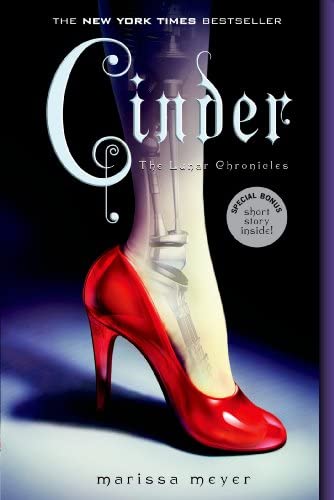
Humans and androids crowd the raucous streets of New Beijing. A deadly plague ravages the population. From space, a ruthless lunar people watch, waiting to make their move. No one knows that Earth’s fate hinges on one girl. . . . Cinder, a gifted mechanic, is a cyborg. She’s a second-class citizen with a mysterious past and reviled by her stepmother. But when her life becomes intertwined with the handsome Prince Kai’s, she suddenly finds herself at the center of an intergalactic struggle, and a forbidden attraction. Caught between duty and freedom, loyalty and betrayal, she must uncover secrets about her past in order to protect her world’s future. Book one of the Lunar Chronicles introduces readers to an unforgettable heroine and a masterfully crafted, enthralling new world.
The Curious Charms of Arthur Pepper
By: Phaedra Patrick
Genre: Fiction
Books in Set:10
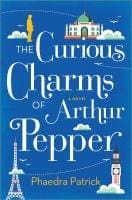
Finding a mysterious charm bracelet among his late wife’s possessions, sixty-nine-year-old Arthur Pepper breaks from his routine life for the first time since her death and embarks on a quest to learn about his wife’s life before their marriage, a journey that leads to unexpected self-discoveries.
Dear George, Dear Mary
By: Mary Calvi
Genre: Historical Fiction – Fiction
Books in Set:8
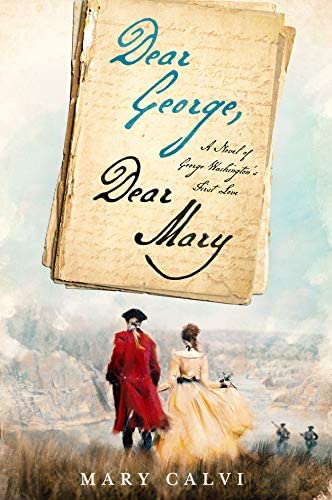
Did unrequited love spark a flame that ignited a cause that became the American Revolution? Never before has this story about George Washington been told. Crafted from hundreds of letters, witness accounts, and journal entries, Dear George, Dear Mary explores George’s relationship with his first love, New York heiress Mary Philipse, the richest belle in Colonial America.
From elegant eighteenth-century society to bloody battlefields, the novel creates breathtaking scenes and riveting characters. Dramatic portraits of the two main characters unveil a Washington on the precipice of greatness, using the very words he spoke and wrote, and his ravishing love, whose outward beauty and refinement disguise a complex inner struggle.
Dear George, Dear Mary reveals why George Washington had such bitter resentment toward the Brits, established nearly two decades before the American Revolution, and it unveils details of a deception long hidden from the world that led Mary Philipse to be named a traitor, condemned to death and left with nothing. While that may sound like the end, ultimately both Mary and George achieve what they always wanted.
The Dry
By: Jane Harper
Genre: Fiction
Books in Set:10
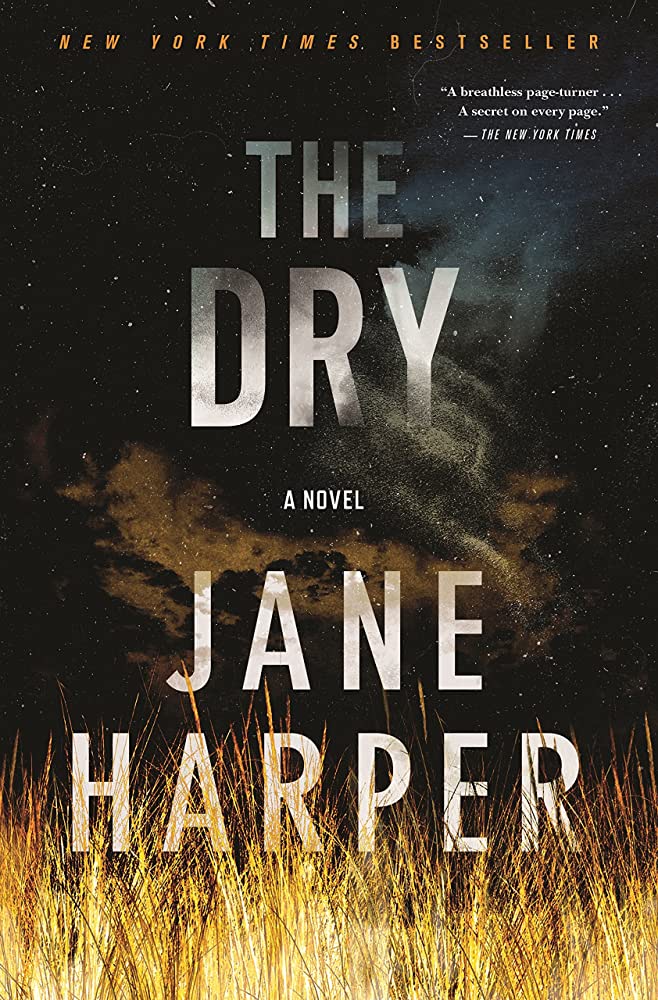
After getting a note demanding his presence, Federal Agent Aaron Falk arrives in his hometown for the first time in decades to attend the funeral of his best friend, Luke. Twenty years ago when Falk was accused of murder, Luke was his alibi. Falk and his father fled under a cloud of suspicion, saved from prosecution only because of Luke’s steadfast claim that the boys had been together at the time of the crime. But now more than one person knows they didn’t tell the truth back then, and Luke is dead.
Amid the worst drought in a century, Falk and the local detective question what really happened to Luke. As Falk reluctantly investigates to see if there’s more to Luke’s death than there seems to be, long-buried mysteries resurface, as do the lies that have haunted them. And Falk will find that small towns have always hidden big secrets.
Edenbrooke
By: Julianne Donaldson
Genre: Historical Fiction – Fiction
Books in Set:7
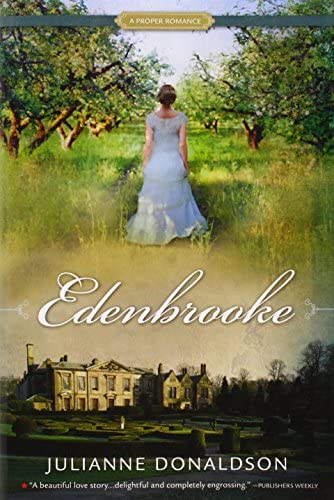
Marianne Daventry will do anything to escape the boredom of Bath and the amorous attentions of an unwanted suitor. So when an invitation arrives from her twin sister, Cecily, to join her at a sprawling country estate, she jumps at the chance. Thinking she’ll be able to relax and enjoy her beloved English countryside while her sister snags the handsome heir of Edenbrooke, Marianne finds that even the best laid plans can go awry.
From a terrifying run-in with a highwayman to a seemingly harmless flirtation, Marianne finds herself embroiled in an unexpected adventure filled with enough romance and intrigue to keep her mind racing. Will Marianne be able to rein in her traitorous heart, or will a mysterious stranger sweep her off her feet? Fate had something other than a relaxing summer in mind when it sent Marianne to Edenbrooke.
Ella Enchanted
By: Gail Carson Levine
Genre: Fiction/Teen Fiction
Books in Set:9
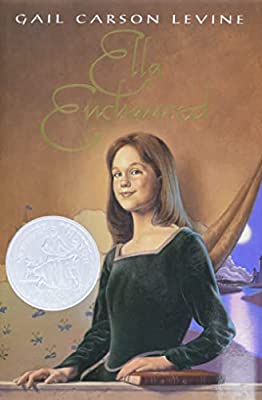
How can a fairy’s blessing be such a curse?
At her birth, Ella of Frell was given a foolish fairy’s gift—the “gift” of obedience. Ella must obey any order given to her, whether it’s hopping on one foot for a day or chopping off her own head!
But strong-willed Ella does not tamely accept her fate. She goes on a quest, encountering ogres, giants, wicked stepsisters, fairy godmothers, and handsome princes, determined to break the curse—and live happily ever after.
Emily’s House
By: Amy Belding Brown
Genre: Historical Fiction – Fiction
Books in Set:10
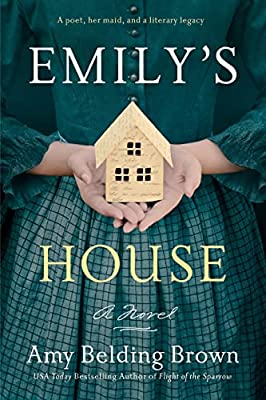
Massachusetts, 1869. When Maggie accepts a temporary position at the illustrious Dickinson family home in Amherst, it’s only to save up enough for a ticket west to join her brothers in California. Maggie never imagines she will form a life-altering friendship with the eccentric, brilliant Miss Emily or that she’ll stay at the Homestead for the next thirty years. In this richly drawn novel, Amy Belding Brown explores what it is to be an outsider looking in, and she sheds light on one of Dickinson’s closest confidantes, whose quiet act changed history and continues to influence literature to this very day.
Ender’s Game
By: Orson Scott Card
Genre: Teen Fiction
Books in Set:10

In order to develop a secure defense against a hostile alien race’s next attack, government agencies breed child geniuses and train them as soldiers. A brilliant young boy, Andrew “Ender” Wiggin lives with his kind but distant parents, his sadistic brother Peter, and the person he loves more than anyone else, his sister Valentine. Peter and Valentine were candidates for the soldier-training program but didn’t make the cut–young Ender is the Wiggin drafted to the orbiting Battle School for rigorous military training.
Ender’s skills make him a leader in school and respected in the Battle Room, where children play at mock battles in zero gravity. Yet growing up in an artificial community of young soldiers, Ender suffers greatly from isolation, rivalry from his peers, pressure from the adult teachers, and an unsettling fear of the alien invaders. His psychological battles include loneliness, fear that he is becoming like the cruel brother he remembers, and fanning the flames of devotion to his beloved sister.
Is Ender the general Earth needs? But Ender is not the only result of the genetic experiments. The war with the Buggers has been raging for a hundred years, and the quest for the perfect general has been underway for almost as long. Ender’s two older siblings are every bit as unusual as he is, but in very different ways. Between the three of them lie the abilities to remake a world. If the world survives, that is.
Everyone Brave is Forgiven
By: Chris Cleave
Genre: Historical Fiction – Fiction
Books in Set:10
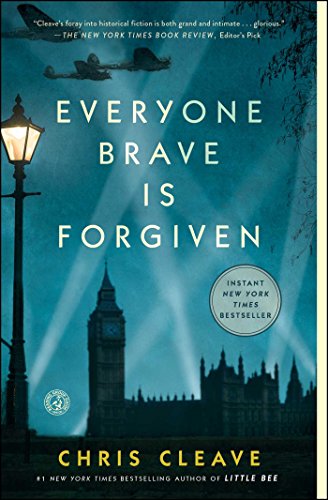
London, 1939. The day war is declared, Mary North leaves finishing school unfinished, goes straight to the War Office, and signs up. Tom Shaw decides to ignore the war—until he learns his roommate Alistair Heath has unexpectedly enlisted. Then the conflict can no longer be avoided. Young, bright, and brave, Mary is certain she’d be a marvelous spy. When she is—bewilderingly—made a teacher, she finds herself defying prejudice to protect the children her country would rather forget. Tom, meanwhile, finds that he will do anything for Mary.
And when Mary and Alistair meet, it is love, as well as war, that will test them in ways they could not have imagined, entangling three lives in violence and passion, friendship and deception, inexorably shaping their hopes and dreams.
Finding Christmas
By: Karen Schaler
Genre: Holiday – Fiction
Books in Set:10

With all the glittering decorations, twinkling lights, snow angels, gingerbread men and mistletoe, Christmas is Emmie’s first love.
This year, she can’t wait to share her favorite Christmas traditions with her boyfriend, Grant. She thinks he’s “the one.” So when Grant’s hectic work schedule has him more “Bah Humbug” than “Ho, Ho, Ho,” Emmie creates a holiday-themed scavenger hunt to help him find his Christmas spirit. At the end of the journey, Grant will arrive at the charming town of Christmas Point where she’s planned a romantic weekend filled with holiday activities.
But Emmie’s plan backfires when a mix-up has the wrong guy following her clues! Sam, a best-selling mystery writer, thinks Emmie’s clever Christmas riddles are from his agent, who is trying to help him get over his epic writer’s block.
When he arrives at Christmas Point and finds the stunned Emmie, he immediately feels she’s someone special, but she can’t see beyond the fact that the wrong guy has shown up. Inspired by the small, charming town, Sam decides to stay and convinces Emmie to join him in a little holiday fun while she waits for Grant.
When Grant finally shows up, Emmie is disappointed to discover he’s not enjoying the activities she planned and can’t help wonder if he’s really the one for her. She also can’t get Sam out of her mind and all the great times they had together. With Christmas coming fast, Emmie will need the magic of the season to help steer her in the direction of true love…
Finding Dorothy
By: Elizabeth Letts
Genre: Historical Fiction – Fiction
Books in Set:8
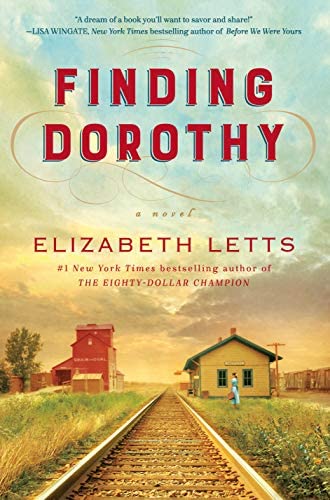
Hollywood, 1938: As soon as she learns that M-G-M is adapting her late husband’s masterpiece for the screen, seventy-seven-year-old Maud Gage Baum sets about trying to finagle her way onto the set. Nineteen years after Frank’s passing, Maud is the only person who can help the producers stay true to the spirit of the book–because she’s the only one left who knows its secrets.
But the moment she hears Judy Garland rehearsing the first notes of “Over the Rainbow,” Maud recognizes the yearning that defined her own life story, from her youth as a suffragette’s daughter to her coming of age as one of the first women in the Ivy League, from her blossoming romance with Frank to the hardscrabble prairie years that inspired The Wonderful Wizard of Oz. Judy reminds Maud of a young girl she cared for and tried to help in South Dakota, a dreamer who never got her happy ending. Now, with the young actress under pressure from the studio as well as her ambitious stage mother, Maud resolves to protect her–the way she tried so hard to protect the real Dorothy.
The author of two New York Times bestselling nonfiction books , The Eighty-Dollar Champion and The Perfect Horse, Elizabeth Letts is a master at discovering and researching a rich historical story and transforming it into a page-turner. Finding Dorothy is the result of Letts’s journey into the amazing lives of Frank and Maud Baum. Written as fiction but based closely on the truth, Elizabeth Letts’s new book tells a story of love, loss, inspiration, and perseverance, set in America’s heartland.
The Forgotten Letters of Esther Durrant
By: Kayte Nunn
Genre: Historical Fiction – Fiction
Books in Set:10
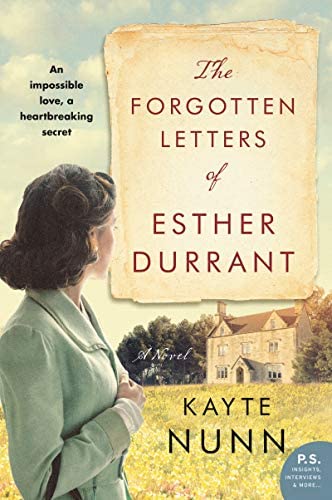
A cache of unsent love letters from the 1950s is found in a suitcase on a remote island in this mysterious love story in the tradition of the novels by Kate Morton and Elizabeth Gilbert.
1951. Esther Durrant, a young mother, is committed to an isolated mental asylum by her husband. Run by a pioneering psychiatrist, the hospital is at first Esther’s prison but soon surprisingly becomes her refuge.
2018. Free-spirited marine scientist Rachel Parker embarks on a research posting in the Isles of Scilly, off the Cornish coast. When a violent storm forces her to take shelter on a far-flung island, she discovers a collection of hidden love letters. Captivated by their passion and tenderness, Rachel determines to track down the intended recipient. But she has no idea of the far-reaching consequences her decision will bring.
Meanwhile, in London, Eve is helping her grandmother, a renowned mountaineer, write her memoirs. When she is contacted by Rachel, it sets in motion a chain of events that threatens to reveal secrets kept buried for more than sixty years.
With an arresting dual narrative that immediately captivates the reader, The Forgotten Letters of Esther Durrant is an inspirational story of the sacrifices made for love.
Frankenstein
By: Mary Shelley
Genre: Fiction
Books in Set:10
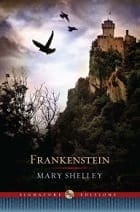
Few creatures of horror have seized readers’ imaginations and held them for so long as the anguished monster of Mary Shelley’s Frankenstein. The story of Victor Frankenstein’s terrible creation and the havoc it caused has enthralled generations of readers and inspired countless writers of horror and suspense. Considering the novel’s enduring success, it is remarkable that it began merely as a whim of Lord Byron’s.
“We will each write a story,” Byron announced to his next-door neighbors, Mary Wollstonecraft Godwin and her lover Percy Bysshe Shelley. The friends were summering on the shores of Lake Geneva in Switzerland in 1816, Shelley still unknown as a poet and Byron writing the third canto of Childe Harold. When continued rains kept them confined indoors, all agreed to Byron’s proposal.
The illustrious poets failed to complete their ghost stories, but Mary Shelley rose supremely to the challenge. With Frankenstein, she succeeded admirably in the task she set for herself: to create a story that, in her own words, “would speak to the mysterious fears of our nature and awaken thrilling horror — one to make the reader dread to look round, to curdle the blood, and quicken the beatings of the heart.”
The Great Gatsby
By: F. Scott Fitzgerald
Genre: Fiction
Books in Set:10
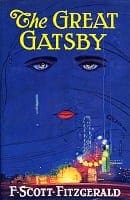
The story of the fabulously wealthy Jay Gatsby and his love for the beautiful Daisy Buchanan, of lavish parties on Long Island at a time when, The New York Times remarked, “gin was the national drink and sex the national obsession,” it is an exquisitely crafted tale of America in the 1920s that resonates with the power of myth. A novel of lyrical beauty yet brutal realism, of magic, romance, and mysticism, The Great Gatsby is one of the great classics of twentieth-century literature.
Harry Potter and the Sorcerer’s Stone
By: J. K. Rowling
Genre: Fiction/Teen
Books in Set:10
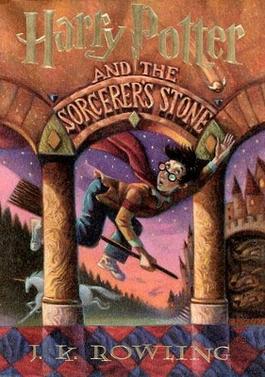
Harry Potter’s life is miserable. His parents are dead and he’s stuck with his heartless relatives, who force him to live in a tiny closet under the stairs. But his fortune changes when he receives a letter that tells him the truth about himself: he’s a wizard. A mysterious visitor rescues him from his relatives and takes him to his new home, Hogwarts School of Witchcraft and Wizardry.
Hattie Big Sky
By: Kirby Larson
Genre: Fiction/Teen
Books in Set:9
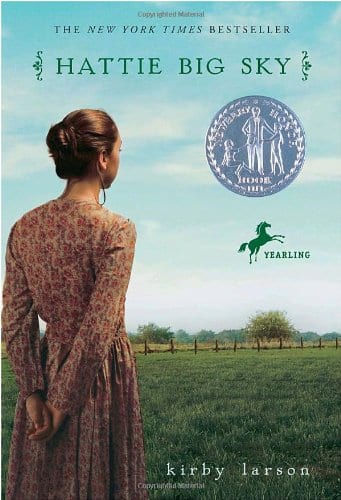
Alone in the world, teen-aged Hattie is driven to prove up on her uncle’s homesteading claim.
For years, sixteen-year-old Hattie’s been shuttled between relatives. Tired of being Hattie Here-and-There, she courageously leaves Iowa to prove up on her late uncle’s homestead claim near Vida, Montana. With a stubborn stick-to-itiveness, Hattie faces frost, drought and blizzards. Despite many hardships, Hattie forges ahead, sharing her adventures with her friends–especially Charlie, fighting in France–through letters and articles for her hometown paper.
Her backbreaking quest for a home is lightened by her neighbors, the Muellers. But she feels threatened by pressure to be a “Loyal” American, forbidding friendships with folks of German descent. Despite everything, Hattie’s determined to stay until a tragedy causes her to discover the true meaning of home.
The Hobbit
By: J.R.R. Tolkien
Genre: Fiction
Books in Set:8
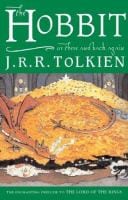
“In a hole in the ground there lived a hobbit. Not a nasty, dirty, wet hole, filled with the ends of worms and an oozy smell, nor yet a dry, bare, sandy hole with nothing in it to sit down on or to eat: it was a hobbit-hole, and that means comfort.”
The hobbit-hole in question belongs to one Bilbo Baggins, an upstanding member of a “little people, about half our height, and smaller than the bearded dwarves.” He is, like most of his kind, well off, well fed, and best pleased when sitting by his own fire with a pipe, a glass of good beer, and a meal to look forward to. Certainly this particular hobbit is the last person one would expect to see set off on a hazardous journey; indeed, when Gandalf the Grey stops by one morning, “looking for someone to share in an adventure,” Baggins fervently wishes the wizard elsewhere. No such luck, however; soon 13 fortune-seeking dwarves have arrived on the hobbit’s doorstep in search of a burglar, and before he can even grab his hat or an umbrella, Bilbo Baggins is swept out his door and into a dangerous adventure. (Amazon.com review)
The Horse Dancer
By: Jojo Moyes
Genre: Fiction
Books in Set:10
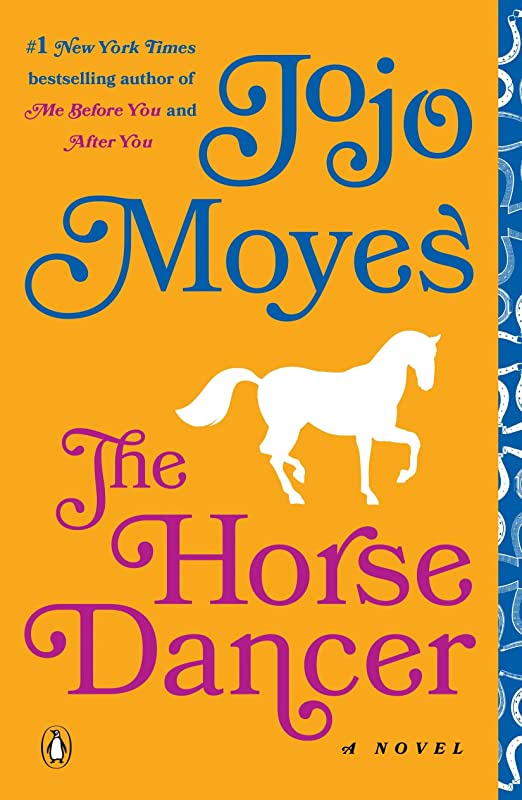
In a hidden corner of London, Henri Lachapelle is teaching his granddaughter and her horse to defy gravity, just as he had done in France, fifty years previously. But when disaster strikes, fourteen-year-old Sarah is left to fend for herself. Forced to share a house with her charismatic ex-husband, her professional judgement called into question, lawyer Natasha Macauley’s life seems to have gone awry. When her path crosses that of Sarah, she sees a chance to put things right.
But she doesn’t know that Sarah is keeping a secret… one that will chance all of their lives.
How to Stop Time
By: Matt Haig
Genre: Fiction
Books in Set:10
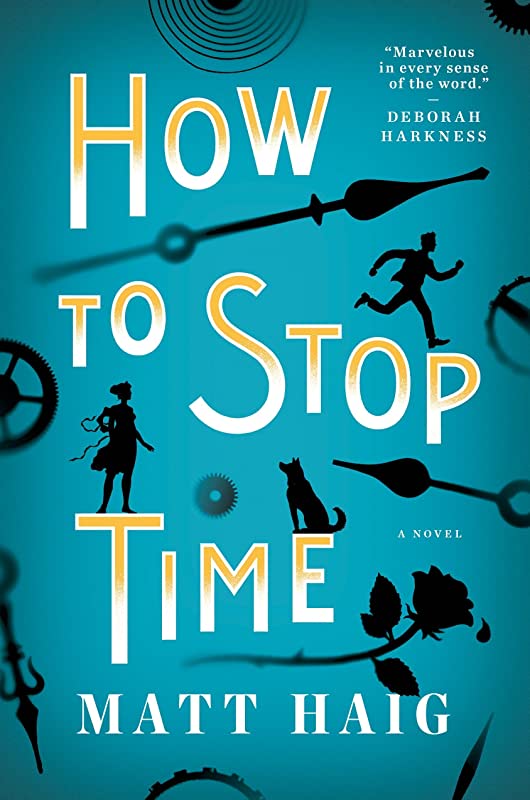
How to Stop Time tells a love story across the ages–and for the ages–about a man lost in time, the woman who could save him, and the lifetimes it can take to learn how to live. It is a bighearted, wildly original novel about losing and finding yourself, the inevitability of change, and how with enough time to learn, we just might find happiness.
Howl’s Moving Castle
By: Diana Wynne Jones
Genre: Fiction/Teen
Books in Set:7
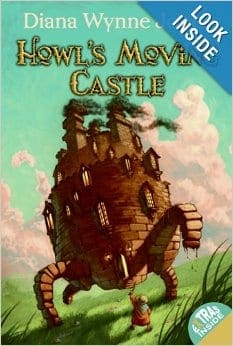
Sophie has the great misfortune of being the eldest of three daughters, destined to fail miserably should she ever leave home to seek her fate. But when she unwittingly attracts the ire of the Witch of the Waste, Sophie finds herself under a horrid spell that transforms her into an old lady. Her only chance at breaking it lies in the ever-moving castle in the hills: the Wizard Howl’s castle. To untangle the enchantment, Sophie must handle the heartless Howl, strike a bargain with a fire demon, and meet the Witch of the Waste head-on. Along the way, she discovers that there’s far more to Howl–and herself–than first meets the eye.
The The Hundred Foot Journey
By: Richard C. Morais
Genre: Fiction
Books in Set:10
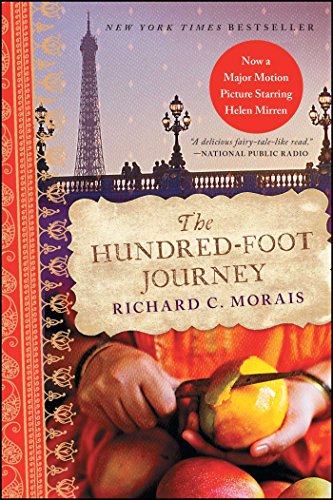
Born above his grandfather’s modest restaurant in Mumbai, Hassan Haji first experienced life through intoxicating whiffs of spicy fish curry, trips to the local markets, and gourmet outings with his mother. But when tragedy pushes the family out of India, they console themselves by eating their way around the world, eventually settling in Lumière, a small village in the French Alps.
The boisterous Haji family takes Lumière by storm. They open an inexpensive Indian restaurant opposite an esteemed French relais–that of the famous chef Madame Mallory–and infuse the sleepy town with the spices of India, transforming the lives of its eccentric villagers and infuriating their celebrated neighbor. Only after Madame Mallory wages culinary war with the immigrant family, does she finally agree to mentor young Hassan, leading him to Paris, the launch of his own restaurant, and a slew of new adventures.
The Hundred-Foot Journey is about how the hundred-foot distance between a new Indian kitchen and a traditional French one can represent the gulf between different cultures and desires. A testament to the inevitability of destiny, this is a fable for the ages–charming, endearing, and compulsively readable.
The Invention of Wings
By: Sue Monk Kidd
Genre: Fiction
Books in Set:10
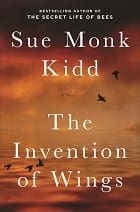
The story follows Hetty “Handful” Grimke, a Charleston slave, and Sarah, the daughter of the wealthy Grimke family. The novel begins on Sarah’s eleventh birthday, when she is given ownership over Handful, who is to be her handmaid. “The Invention of Wings” follows the next thirty-five years of their lives. Inspired in part by the historical figure of Sarah Grimke (a feminist, suffragist and, importantly, an abolitionist), Kidd allows herself to go beyond the record to flesh out the inner lives of all the characters, both real and imagined.
The Jane Austen Society
By: Natalie Jenner
Genre: Historical Fiction – Fiction
Books in Set:10
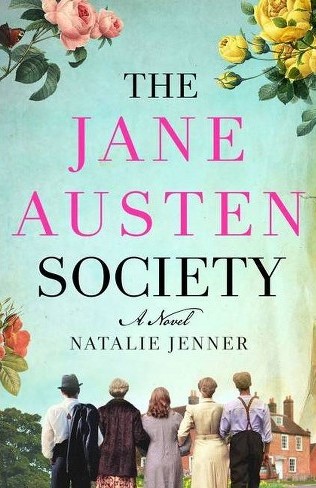
Just after the Second World War, in the small English village of Chawton, an unusual but like-minded group of people band together to attempt something remarkable.
One hundred and fifty years ago, Chawton was the final home of Jane Austen, one of England’s finest novelists. Now it’s home to a few distant relatives and their diminishing estate. With the last bit of Austen’s legacy threatened, a group of disparate individuals come together to preserve both Jane Austen’s home and her legacy. These people–a laborer, a young widow, the local doctor, and a movie star, among others–could not be more different and yet they are united in their love for theworks and words of Austen. As each of them endures their own quiet struggle with loss and trauma, some from the recent war, others from more distant tragedies, they rally together to create the Jane Austen Society.
A powerful and moving novel that explores the tragedies and triumphs of life, both large and small, and the universal humanity in us all, Natalie Jenner’s The Jane Austen Society is destined to resonate with readers for years to come.
Keep Quiet
By: Lisa Scottoline
Genre: Fiction
Books in Set:8
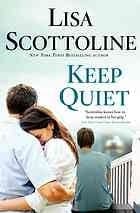
Jake Whitmore is enjoying a rare bonding moment with his sixteen-year-old son, Kurt, when disaster strikes. They get in a terrible car accident that threatens to derail not only Kurt’s chances at college, but his entire future. Jake makes a split-second decision that saves his son from formal punishment, but plunges them both into a world of guilt, lies, and secrecy. Just when Jake thinks he has everything under control, a malevolent outsider comes forward with the power to expose Jake’s secret and taunts him to the breaking point. Keep Quiet is the powerful and gut-wrenching tale of the unraveling–and the ultimate redemption–of a family.
The Kept
By: James Scott
Genre: Fiction
Books in Set:10
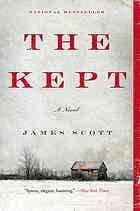
After her husband and four of her children are brutally murdered in the winter of 1897, midwife Elspeth Howell, along with her surviving son, twelve-year-old Caleb, takes on the frozen wilderness to find the men responsible for shattering their family.
The Kitchen Front
By: Jennifer Ryan
Genre: Historical Fiction – Fiction
Books in Set:8
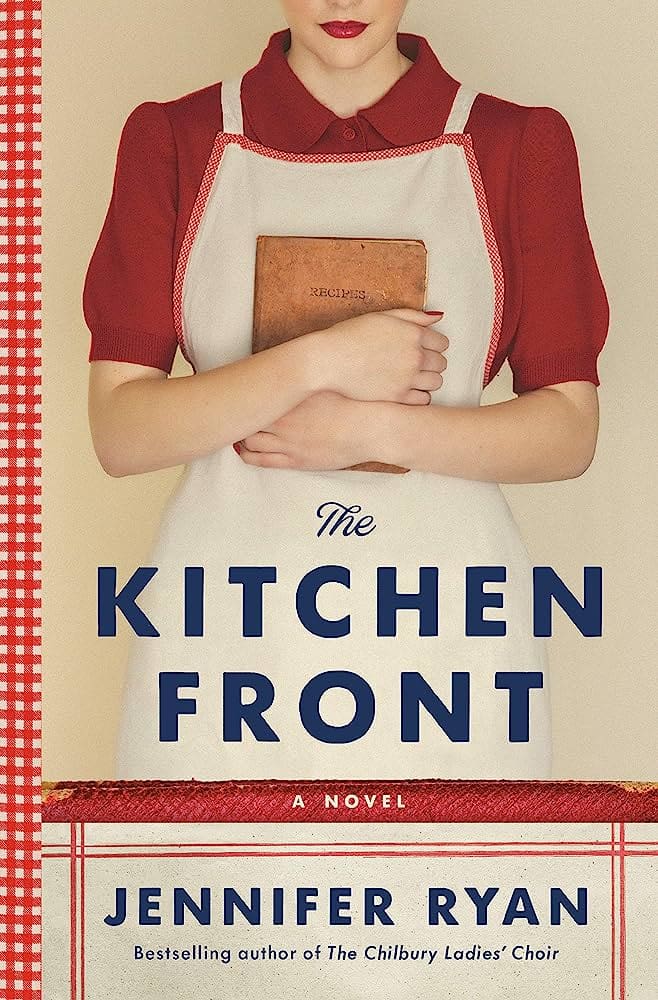
Two years into World War II, Britain is feeling her losses: The Nazis have won battles, the Blitz has destroyed cities, and U-boats have cut off the supply of food. In an effort to help housewives with food rationing, a BBC radio program called The Kitchen Front is holding a cooking contest–and the grand prize is a job as the program’s first-ever female co-host. For four very different women, winning the competition would present a crucial chance to change their lives.
For a young widow, it’s a chance to pay off her husband’s debts and keep a roof over her children’s heads. For a kitchen maid, it’s a chance to leave servitude and find freedom. For a lady of the manor, it’s a chance to escape her wealthy husband’s increasingly hostile behavior. And for a trained chef, it’s a chance to challenge the men at the top of her profession.
These four women are giving the competition their all–even if that sometimes means bending the rules. But with so much at stake, will the contest that aims to bring the community together only serve to break it apart?
Life After Life
By: Kate Atkinson
Genre: Fiction
Books in Set:10
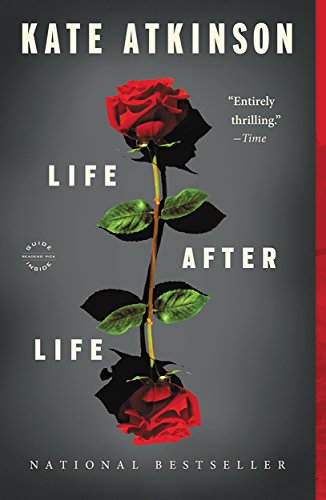
On a cold and snowy night in 1910, Ursula Todd is born to an English banker and his wife. She dies before she can draw her first breath. On that same cold and snowy night, Ursula Todd is born, lets out a lusty wail, and embarks upon a life that will be, to say the least, unusual. For as she grows, she also dies, repeatedly, in a variety of ways, while the young century marches on towards its second cataclysmic world war. Does Ursula’s apparently infinite number of lives give her the power to save the world from its inevitable destiny? And if she can – will she?
The Love Story of Missy Carmichael
By: Beth Morrey
Genre: Fiction
Books in Set:8
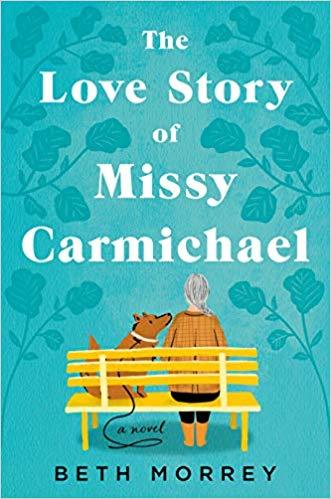
The world has changed around seventy-nine-year-old librarian Millicent Carmichael, aka Missy. Though quick to admit that she often found her roles as a housewife and mother less than satisfying, Missy once led a bustling life driven by two children, an accomplished and celebrated husband, and a Classics degree from Cambridge. Now her husband is gone, her daughter is estranged after a shattering argument, and her son has moved to his wife’s native Australia, taking Missy’s beloved only grandchild half-a-world away. She spends her days sipping sherry, avoiding people, and rattling around in her oversized, under-decorated house waiting for…what exactly?
The last thing Missy expects is for two perfect strangers and one spirited dog named Bob to break through her prickly exterior and show Missy just how much love she still has to give. In short order, Missy finds herself in the jarring embrace of an eclectic community that simply won’t take no for an answer–including a rambunctious mutt-on-loan whose unconditional love gives Missy a reason to re-enter the world one muddy paw print at a time.
Filled with wry laughter and deep insights, The Love Story of Missy Carmichael is a coming-of-old story that shows us it’s never too late to forgive yourself and, just as important, it’s never too late to love.
The Master Craftsman
By: Kelli Stuart
Genre: Fiction – Historical Fiction
Books in Set:10
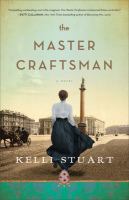
In 1917, Alma Pihl, a master craftsman in the House of Fabergé, was charged to protect one of the greatest secrets in Russian history–an unknown Fabergé Egg that Peter Karl Fabergé secretly created to honor his divided allegiance to both the people of Russia and the Imperial tsar’s family. When Alma and her husband escaped Russia for their native Finland in 1921, she took the secret with her, guarding her past connection to the Romanov family.
Three generations later, world-renowned treasure hunter Nick Laine is sick and fears the secret of the missing egg will die with him. With time running out, he entrusts the mission of retrieving the egg to his estranged daughter, Ava, who has little idea of the dangers she is about to face. As the stakes are raised, Ava is forced to declare her own allegiance–and the consequences are greater than she could have imagined.
This modern-day treasure hunt from award-winning author Kelli Stuart transports you into the opulent and treacherous world of the Russian Revolution to unearth mysteries long buried.
The Midnight Library
By: Mat Haigg
Genre: Fiction
Books in Set:8
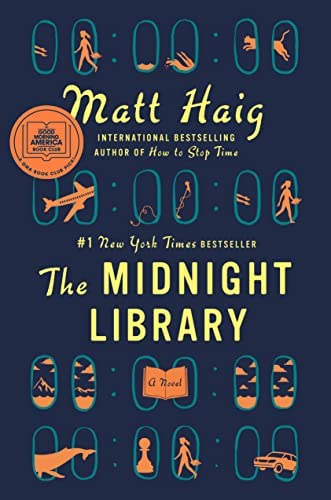
Somewhere out beyond the edge of the universe there is a library that contains an infinite number of books, each one the story of another reality. One tells the story of your life as it is, along with another book for the other life you could have lived if you had made a different choice at any point in your life. While we all wonder how our lives might have been, what if you had the chance to go to the library and see for yourself? Would any of these other lives truly be better?
In The Midnight Library, Matt Haig’s enchanting blockbuster novel, Nora Seed finds herself faced with this decision. Faced with the possibility of changing her life for a new one, following a different career, undoing old breakups, realizing her dreams of becoming a glaciologist; she must search within herself as she travels through the Midnight Library to decide what is truly fulfilling in life, and what makes it worth living in the first place.
Miss Austen
By: Gill Hornby
Genre: Historical Fiction – Fiction
Books in Set:10

Whoever looked at an elderly lady and saw the young heroine she once was?
England, 1840. Two decades after the death of her beloved sister, Jane, Cassandra Austen returns to the village of Kintbury and the home of her family friends, the Fowles. In a dusty corner of the vicarage, there is a cache of Jane’s letters that Cassandra is desperate to find. Dodging her hostess and a meddlesome housemaid, Cassandra eventually hunts down the letters and confronts the secrets they hold, secrets not only about Jane but about Cassandra herself. Will Cassandra bare the mostprivate details of her life to the world, or commit her sister’s legacy to the flames?
Moving back and forth between the vicarage and Cassandra’s vibrant memories of her years with Jane, interwoven with Jane’s brilliantly reimagined lost letters, Miss Austen is the untold story of the most important person in Jane’s life. With extraordinary empathy, emotional complexity, and wit, Gill Hornby finally gives Cassandra her due, bringing to life a woman as captivating as any Austen heroine.
A Murder at Rosamund’s Gate
By: Susana Calkins
Genre: Fiction
Books in Set:10
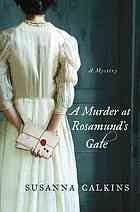
For Lucy Campion, a seventeenth-century English chambermaid serving in the household of the local magistrate, life is an endless repetition of polishing pewter, emptying chamber pots, and dealing with other household chores until a fellow servant is ruthlessly killed, and someone she loves is wrongly arrested for the crime. In a time where the accused are presumed guilty until proven innocent, lawyers aren’t permitted to defend their clients, and—if the plague doesn’t kill them first–public executions draw a large crowd of spectators, Lucy knows she may never see this person alive again. Unless, that is, she can identify the true murderer.
One Two Three
By: Laurie Frankel
Genre: Fiction
Books in Set:10

From the New York Times bestselling author of This Is How It Always Is, a Reese’s Book Club x Hello Sunshine Book Pick, comes a timely, topical novel about love and family that will make you laugh and cry…and laugh again. How do you let go of the past when the past won’t let go of you? Everyone knows everyone in the tiny town of Bourne. But the Mitchell sisters are especially beloved, and not just because they’re teenage triplets. Mirabel is the smartest person anyone has ever met, and no one is fooled by her wheelchair or her Voice app into thinking otherwise. Monday is the town’s purveyor of books now that the library’s closed–tell her the book you think you want, and she’ll pull the one you actually do from the microwave or her underwear drawer. Mab’s job is hardest of all: get good grades, get into college, get out of Bourne. For a few weeks seventeen years ago, Bourne was national news when its water turned green and was declared unfit for use, but it was too late for its residents. And just when it seems life might go on the same forever, the first moving truck anyone’s seen in years pulls up. Then a new student enrolls at Bourne Memorial High. He’s smart and handsome and exciting–and the Mitchell family’s sworn enemy. And soon, in a town where nothing ever changes, suddenly everything does.
The Operator
By: Gretchen Berg
Genre: Historical Fiction -Fiction
Books in Set:8
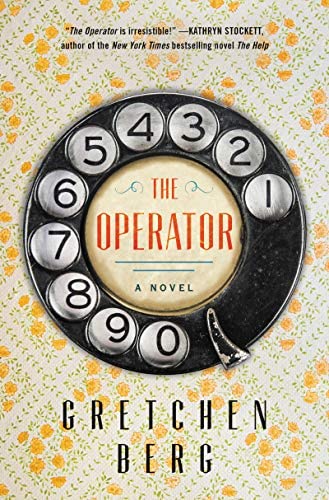
“What if you could listen in on any phone conversation in town? With great humor and insight, The Operator by Gretchen Berg delivers a vivid look inside the heads and hearts of a group of housewives and pokes at the absurdities of 1950s America, a simpler time that was far from simple. Think The Marvelous Mrs. Maisel in the suburbs with delicious turns of jealousy, infidelity, bigotry, and embezzlement thrown in for good measure. The Operator is irresistible!” –Kathryn Stockett, author of the New York Times bestselling novel The Help
A clever, surprising, and ultimately moving debut novel, set in a small Midwestern town in the early 1950s, about a nosy switchboard operator who overhears gossip involving her own family, and the unraveling that discovery sets into motion.
The Outsiders
By: S.E. Hinton
Genre: classic, Teen, and Fiction
Books in Set:10

No one ever said life was easy. But Ponyboy is pretty sure that he’s got things figured out. He knows that he can count on his brothers, Darry and Sodapop. And he knows that he can count on his friends—true friends who would do anything for him, like Johnny and Two-Bit. But not on much else besides trouble with the Socs, a vicious gang of rich kids whose idea of a good time is beating up on “greasers” like Ponyboy. At least he knows what to expect—until the night someone takes things too far.
A Paris Library
By: Janet Skeslien Charles
Genre: Fiction – Historical Fiction
Books in Set:8
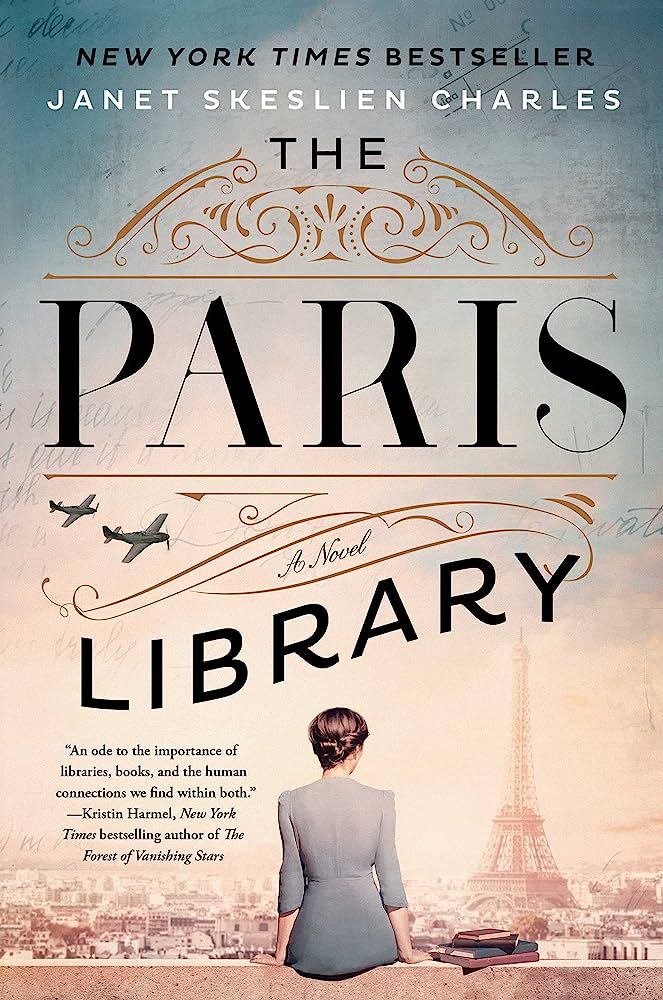
Paris, 1939: Young and ambitious Odile Souchet seems to have the perfect life with her handsome police officer beau and a dream job at the American Library in Paris. When the Nazis march into the city, Odile stands to lose everything she holds dear, including her beloved library. Together with her fellow librarians, Odile joins the Resistance with the best weapons she has: books. But when the war finally ends, instead of freedom, Odile tastes the bitter sting of unspeakable betrayal.
Montana, 1983: Lily is a lonely teenager looking for adventure in small-town Montana. Her interest is piqued by her solitary, elderly neighbor. As Lily uncovers more about her neighbor’s mysterious past, she finds that they share a love of language, the same longings, and the same intense jealousy, never suspecting that a dark secret from the past connects them.
“A love letter to Paris, the power of books, and the beauty of intergenerational friendship” (Booklist), The Paris Library shows that extraordinary heroism can sometimes be found in the quietest places.
Peace Like a River
By: Leif Enger
Genre: Fiction
Books in Set:6

Eleven-year-old Reuben shares the story of how his father, trying to raise his sons alone in 1960s Minnesota, takes their family on a quest to find Reuben’s older brother, who has been charged with murder.
Pride and Prejudice
By: Jane Austen
Genre: Fiction
Books in Set:10

In early nineteenth century England, a spirited young woman copes with the suit of a snobbish gentleman as well as the romantic entanglements of her four sisters.
A Rip Through Time
By: Kelley Armstrong
Genre: Fiction – Historical Fiction
Books in Set:10
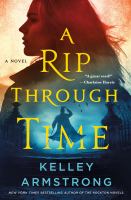
MAY 20, 2019: Homicide detective Mallory Atkinson is in Edinburgh to be with her dying grandmother. While out on a jog one evening, Mallory hears a woman in distress. She’s drawn to an alley, where she is attacked and loses consciousness.
MAY 20, 1869: Housemaid Catriona Mitchell had been enjoying a half day off, only to be discovered that night strangled and left for dead . . . exactly one hundred and fifty years before Mallory is strangled in the same spot.
When Mallory wakes up in Catriona’s body in 1869, she must put aside her shock and adjust quickly to her new reality: life as a housemaid to an undertaker in Victorian Scotland. She soon discovers that her boss, Dr. Gray, also moonlights as a medical examiner and has just taken on an intriguing case, the strangulation of a young man, similar to the attack on herself. Her only hope is that catching the murderer can lead her back to her modern life . . . before it’s too late.
In A Rip Through Time, New York Times bestselling author Kelley Armstrong introduces a brand-new series mixing mystery, romance, and fantasy with thrilling results.
A River Runs Through It
By: Norman Maclean
Genre: Fiction
Books in Set:7

Maclean writes “in my family, there is no clear line between religion and fly-fishing.” Nor is there a clear line between family and fly-fishing. It is the one activity where brother can connect with brother and father with son. In Maclean’s autobiographical novella, it is the river that makes them realize that life continues and all things are related.
Salt to the Sea
By: Ruta Sepetys
Genre: Historical Fiction – Fiction/Teen
Books in Set:8
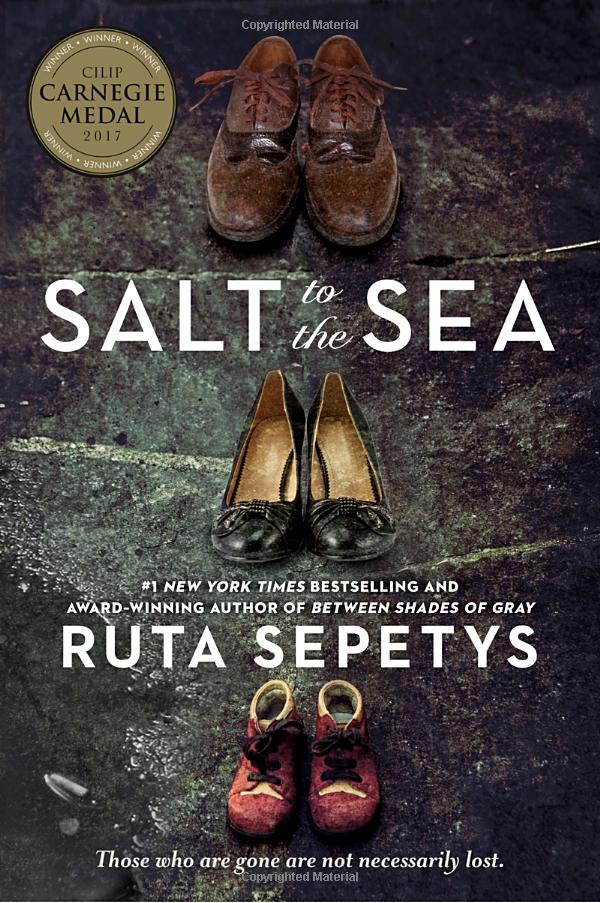
In 1945, World War II is drawing to a close in East Prussia and thousands of refugees are on a desperate trek toward freedom, almost all of them with something to hide. Among them are Joana, Emilia, and Florian, whose paths converge en route to the ship that promises salvation, the Wilhelm Gustloff. Forced by circumstance to unite, the three find their strength, courage, and trust in each other tested with each step closer toward safety. Just when it seems freedom is within their grasp, tragedy strikes. Not country, nor culture, nor status matter as all ten thousand people aboard must fight for the same thing: survival.
Sinners and the Sea
By: Rebecca Kanner
Genre: Historical Fiction – Fiction
Books in Set:10

The young heroine in Sinners and the Sea is destined for greatness. Known only as “wife” in the Bible and cursed with a birthmark that many think is the brand of a demon, this unnamed woman lives anew through Rebecca Kanner. The author gives this virtuous woman the perfect voice to make one of the Old Testament’s stories come alive like never before. This story of Noah’s wife blends Biblical history, mythology, and the inimitable strength of women.
Things You Save in a Fire
By: Katherine Center
Genre: Fiction
Books in Set:8
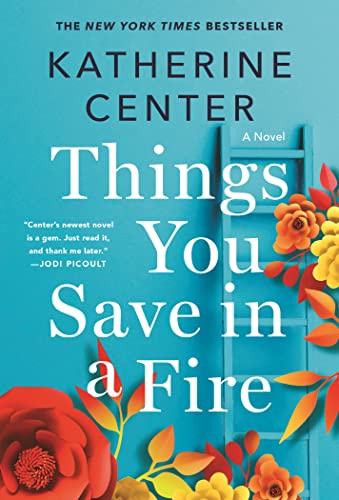
Cassie Hanwell was born for emergencies. As one of the only female firefighters in her Texas firehouse, she’s seen her fair share of them, and she’s a total pro at other people’s tragedies. But when her estranged and ailing mother asks her to give up her whole life and move to Boston, Cassie suddenly has an emergency of her own.
The tough, old-school Boston firehouse is as different from Cassie’s old job as it could possibly be. Hazing, a lack of funding, and poor facilities mean that the firemen aren’t exactly thrilled to have a “lady” on the crew–even one as competent and smart as Cassie. Except for the infatuation-inspiring rookie, who doesn’t seem to mind having Cassie around. But she can’t think about that. Because love is girly, and it’s not her thing. And don’t forget the advice her old captain gave her: Never date firefighters. Cassie can feel her resolve slipping…and it means risking it all–the only job she’s ever loved, and the hero she’s worked like hell to become.
To Kill a Mockingbird
By: Harper Lee
Genre: Fiction/Teen
Books in Set:10
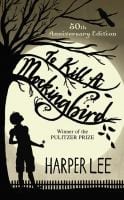
Classic Pulitzer prize winner where eight-year-old “Scout” Finch tells of life in a small Alabama town where her father is a lawyer.
Tokyo Ever After
By: Emiko Jean
Genre: Fiction – Teen
Books in Set:9

Izumi Tanaka has never really felt like she fit in–it isn’t easy being Japanese American in her small, mostly white, northern California town. Raised by a single mother, it’s always been Izumi–or Izzy, because “It’s easier this way”–and her mom against the world. But then Izumi discovers a clue to her previously unknown father’s identity…and he’s none other than the Crown Prince of Japan. Which means outspoken, irreverent Izzy is literally a princess.
In a whirlwind, Izumi travels to Japan to meet the father she never knew and discover the country she always dreamed of. But being a princess isn’t all ball gowns and tiaras. There are conniving cousins, a hungry press, a scowling but handsome bodyguard who just might be her soulmate, and thousands of years of tradition and customs to learn practically overnight.
Izumi soon finds herself caught between worlds, and between versions of herself–back home, she was never “American” enough, and in Japan, she must prove she’s “Japanese” enough. Will Izumi crumble under the weight of the crown, or will she live out her fairy tale, happily ever after?
A Tree Grows in Brooklyn
By: Betty Smith
Genre: Historical Fiction – Fiction
Books in Set:9
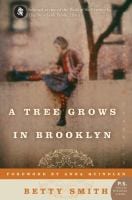
Named one of the books of the century by the New York Public Library, this is the profoundly moving classic about a young girl coming of age at the turn of the century. Born in 1901 in the slums of Brooklyn, Francie Nolan has grown up under the burden of suffering that is the lot of the great city’s poor. Romantic like her father, an Irish singing waiter, yet pragmatic like her mother, a housecleaner and fierce survivor, Francie uses her imagination and tenacity to thrive in the world in spite of these harsh conditions. First published in 1943, A Tree Grows in Brooklyn created a stir in genteel society with its frank descriptions of poverty’s squalor. But the book’s rich humor and pathos and its wealth of unforgettable characters have ensured its place in American literature.
The Tubman Command
By: Elizabeth Cobbs
Genre: Historical Fiction – Fiction
Books in Set:10
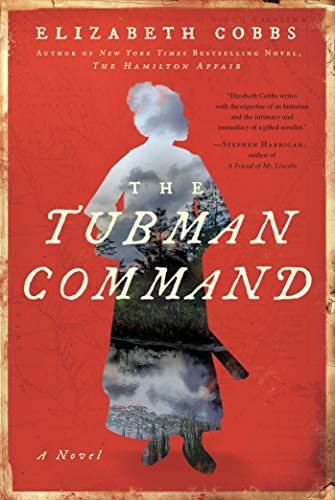
It’s May 1863. Outgeneraled and outgunned, a demoralized Union Army has pulled back with massive losses at the Battle of Chancellorsville. Fort Sumter, hated symbol of the Rebellion, taunts the American navy with its artillery and underwater mines.
In Beaufort, South Carolina, one very special woman, code named Moses, is hatching a spectacular plan. Hunted by Confederates, revered by slaves, Harriet Tubman plots an expedition behind enemy lines to liberate hundreds of bondsmen and recruit them as soldiers. A bounty on her head, she has given up husband and home for the noblest cause: a nation of, by, and for the people.
The Tubman Command tells the story of Tubman at the height of her powers, when she devises the largest plantation raid of the Civil War. General David Hunter places her in charge of a team of black scouts even though skeptical of what one woman can accomplish. For her gamble to succeed, “Moses” must outwit alligators, overseers, slave catchers, sharpshooters, and even hostile Union soldiers to lead gunships up the Combahee River. Men stand in her way at every turn–though one reminds her that love shouldn’t have to be the price of freedom.
Victoria
By: Daisy Goodwin
Genre: Fiction – Historical Fiction
Books in Set:10

Drawing on Queen Victoria’s diaries, which she first started reading when she was a student at Cambridge University, Daisy Goodwin–creator and writer of the new PBS Masterpiece drama Victoria and author of the bestselling novels The American Heiress and The Fortune Hunter– brings the young nineteenth-century monarch, who would go on to reign for 63 years, richly to life in this magnificent novel.
Early one morning, less than a month after her eighteenth birthday, Alexandrina Victoria is roused from bed with the news that her uncle William IV has died and she is now Queen of England. The men who run the country have doubts about whether this sheltered young woman, who stands less than five feet tall, can rule the greatest nation in the world.
Despite her age, however, the young queen is no puppet. She has very definite ideas about the kind of queen she wants to be, and the first thing is to choose her name.
“I do not like the name Alexandrina,” she proclaims. “From now on I wish to be known only by my second name, Victoria.”
Next, people say she must choose a husband. Everyone keeps telling her she’s destined to marry her first cousin, Prince Albert, but Victoria found him dull and priggish when they met three years ago. She is quite happy being queen with the help of her prime minister, Lord Melbourne, who may be old enough to be her father but is the first person to take her seriously.
On June 19th, 1837, she was a teenager. On June 20th, 1837, she was a queen. Daisy Goodwin’s impeccably researched and vividly imagined new book brings readers Queen Victoria as they have never seen her before.
Walk on Earth a Stranger
By: Rae Carson
Genre: Fiction/Teen
Books in Set:10
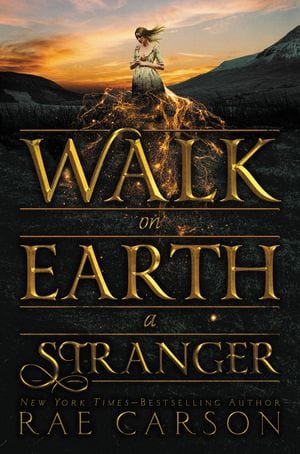
Lee Westfall has a strong, loving family. She has a home she loves and a loyal steed. She has a best friend—who might want to be something more.
She also has a secret.
Lee can sense gold in the world around her. Veins deep in the earth. Small nuggets in a stream. Even gold dust caught underneath a fingernail. She has kept her family safe and able to buy provisions, even through the harshest winters. But what would someone do to control a girl with that kind of power? A person might murder for it.
When everything Lee holds dear is ripped away, she flees west to California—where gold has just been discovered. Perhaps this will be the one place a magical girl can be herself. If she survives the journey.
The Women in the Castle
By: Jessica Shattuck
Genre: Historical Fiction – Fiction
Books in Set:8
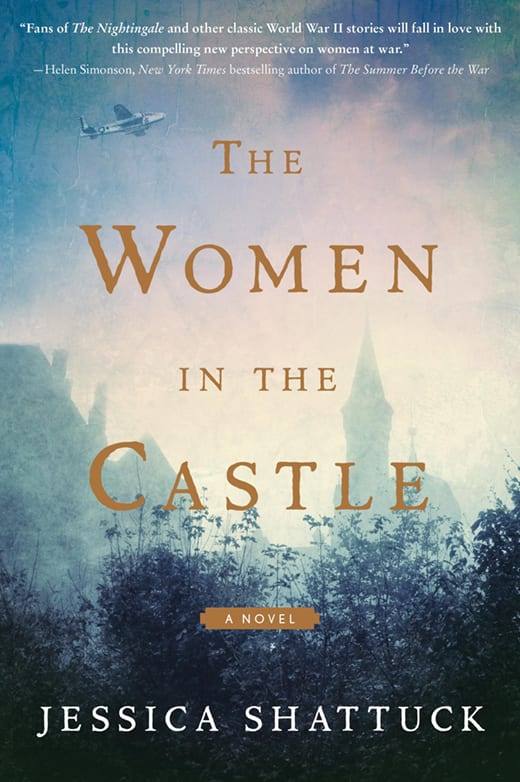
Three women, haunted by the past and the secrets they hold…
Set at the end of World War II, in a crumbling Bavarian castle that once played host to all of German high society, a powerful and propulsive story of three widows whose lives and fates become intertwined—an affecting, shocking, and ultimately redemptive novel from the author of the New York Times Notable Book The Hazards of Good Breeding.
Amid the ashes of Nazi Germany’s defeat, Marianne von Lingenfels returns to the once-grand castle of her husband’s ancestors, an imposing stone fortress now fallen into ruin following years of war. The widow of a resister murdered in the failed July 20, 1944, plot to assassinate Adolf Hitler, Marianne plans to uphold the promise she made to her husband’s brave conspirators: to find and protect their wives, her fellow resistance widows.
The Yellow Bird Sings
By: Jennifer Rosner
Genre: Fiction
Books in Set:10
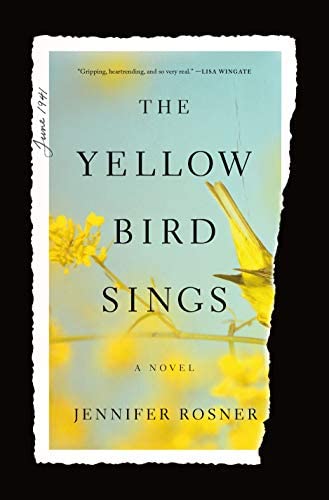
As Nazi soldiers round up the Jews in their town, Róza and her 5-year-old daughter, Shira, flee, seeking shelter in a neighbor’s barn. Hidden in the hayloft day and night, Shira struggles to stay still and quiet, as music pulses through her and the farmyard outside beckons. To soothe her daughter and pass the time, Róza tells her a story about a girl in an enchanted garden:
The girl is forbidden from making a sound, so the yellow bird sings. He sings whatever the girl composes in her head: high-pitched trills of piccolo; low-throated growls of contrabassoon. Music helps the flowers bloom.
In this make-believe world, Róza can shield Shira from the horrors that surround them. But the day comes when their haven is no longer safe, and Róza must make an impossible choice: whether to keep Shira by her side or give her the chance to survive apart.
Inspired by the true stories of Jewish children hidden during World War II, Jennifer Rosner’s debut is a breathtaking novel about the unbreakable bond between a mother and a daughter. Beautiful and riveting, The Yellow Bird Sings is a testament to the triumph of hope–a whispered story, a bird’s song–in even the darkest of times.